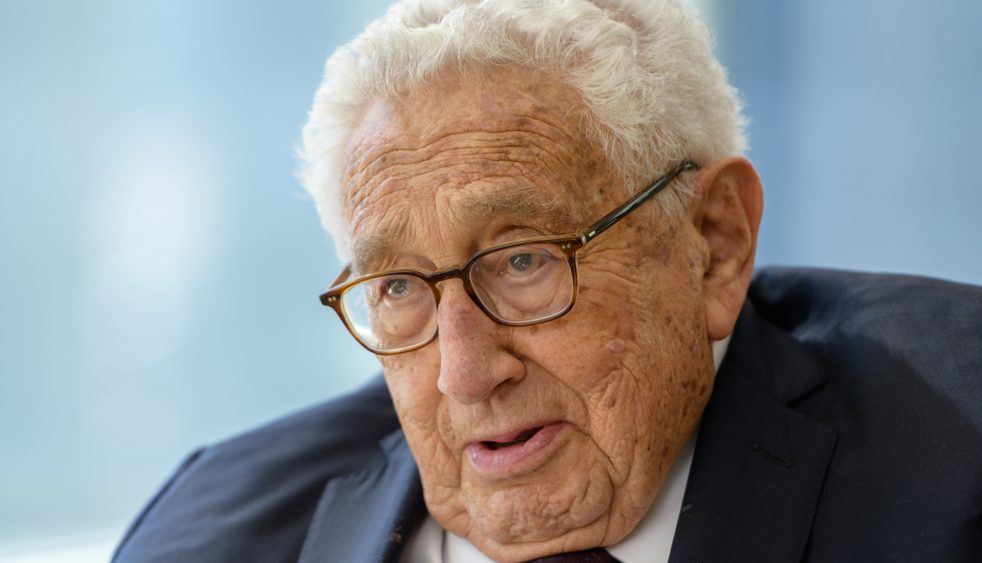
During a short speech at the annual meeting of the World Economic Forum in Davos, the famed American diplomat, statesman, and political strategist Henry Kissinger endorsed NATO membership for Ukraine and outlined a path to peace in the country.
Kissinger spoke on the second day of the meeting of the world’s political and business elite, January 17th.
His comments on Ukraine were dedicated both to clarifying his controversial statements made in May 2022 (that indicated that Ukraine should be willing to cede territory to Russia), and to adding more observations based on the progression of the Russian invasion and Ukraine’s defense since then:
The war in Ukraine began with the invasion of a sovereign country, and the principle that this must not be the method of settling international disputes was established by NATO and sustained by the United States and I have supported the efforts to do so.
He further explained that important strategic objectives had been achieved, namely proving that Russia would meet a united resistance, should it attempt to invade Europe, and that it would not likely win a conventional war against NATO.
But the question of ending the war remains, Kissinger further stated:
The outcome of the war will involve also [sic] where various lines should be drawn in the process of preventing the war from escalating and causing damage beyond existing levels.
He proposed a two-step plan. First, establishing a ceasefire when Russia has retreated to the territory it had occupied before the February 2022 invasion. Then, beginning negotiations for a lasting peace:
A cease-fire along the lines of invasion is a reasonable outcome of the military actions and not necessarily the outcome of a later peace negotiation.
Until a ceasefire, Ukraine should continue to receive military support.
He also said that Russia needed to be allowed to re-establish its position in the international community to avoid making Russia feel that the defense of Ukraine had become a “war against Russia itself.”
“This may seem very hollow to nations that have been under Russian pressure for much of the Cold War period,” Kissinger said.
But, he continued, too hard-line of a policy against the nation “may cause Russia to re-evaluate its historic position, which was an amalgam of an attraction to the culture of Europe and a fear of domination by Europe.”
“The destruction of Russia as a state that can pursue its own policies will open up the vast area of its eleven time zones to internal conflict and to outside intervention at a time when there are 15,000 and more nuclear weapons on its territory,” he warned.
He again said:
So this is why I believe in dialogue with Russia while the war continues, an end of fighting when the prewar line is reached, and a continuing process of discussion by Europe, America, and at that point Russia … while the conditions of sanctions and other pressures will be maintained until a final settlement is reached.
Kissinger also praised the Ukrainian people and Ukrainian president Volodymyr Zelensky for their heroism.
He explained that he had previously opposed NATO membership for Ukraine out of fears that it would cause the situation that has unfolded in the last year. But now the circumstances have changed.
“Under these conditions, a neutral Ukraine is no longer meaningful,” he said, and Ukraine should be invited into the NATO fold.
He concluded his comments by hoping that the courage of Ukraine would be met by the sagacity of Europe in its relations with Russia.
